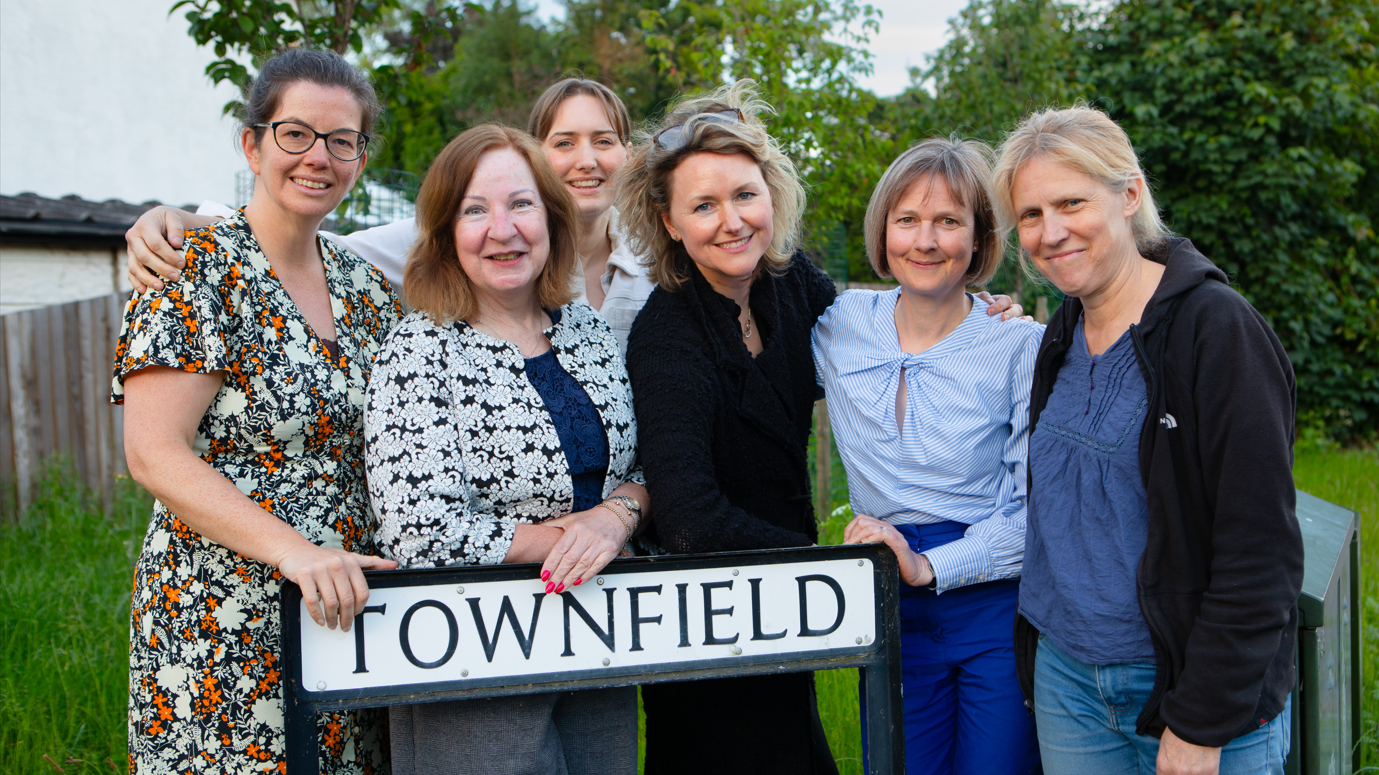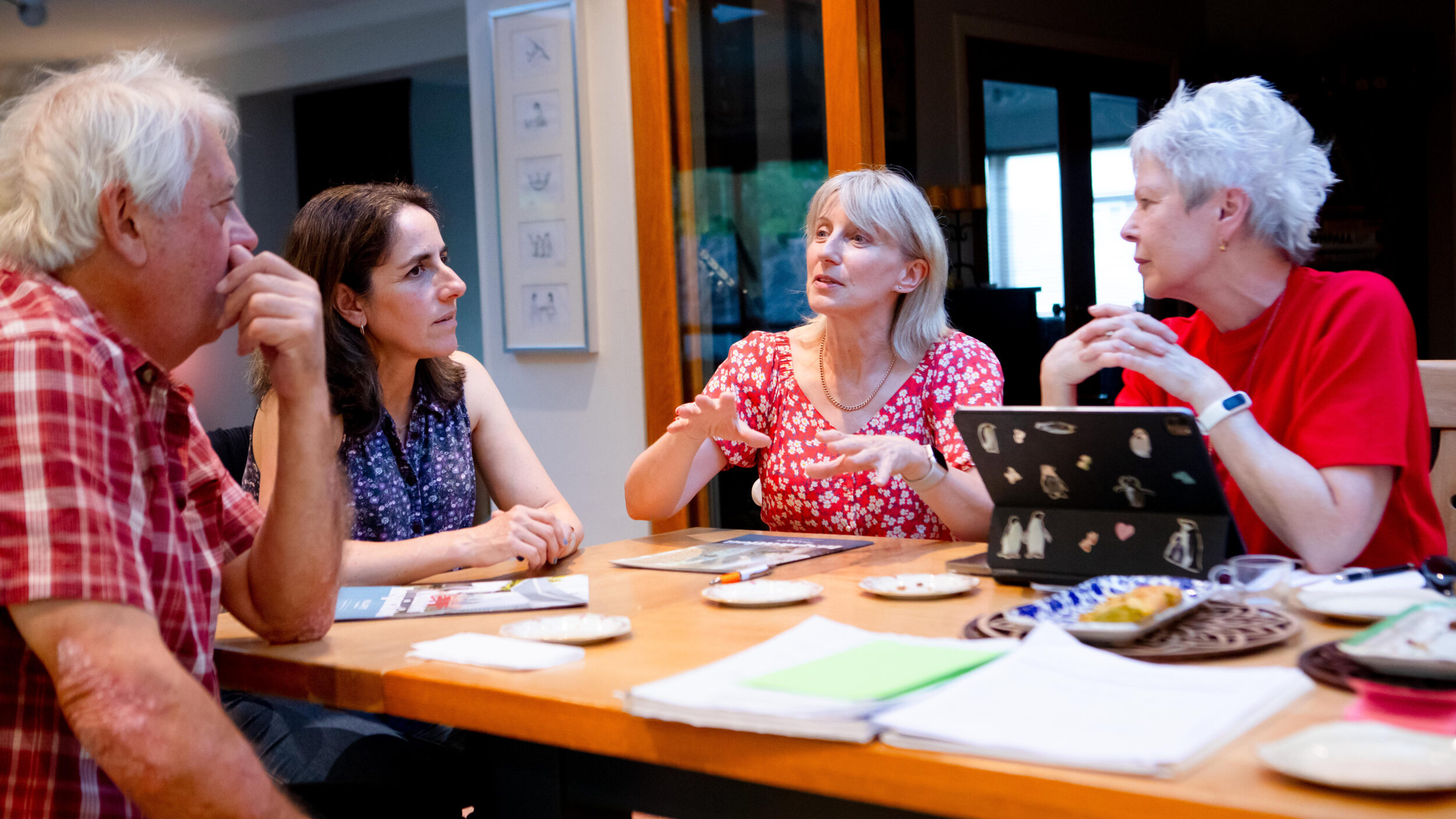Grand Union Community Energy’s (GUCE) vision is for communities along the Grand Union Canal in Hertfordshire to enjoy a clean and resilient energy system that benefits everyone.
GUCE develops, supports and promotes renewable energy projects, while helping households cut bills and energy use. Its work includes community-funded solar projects, renewable heating schemes, Energy Champion training, waste reduction and money-saving programmes.
GUCE partnered with Three Rivers District Council on two main work-streams through the Net Zero Living Programme (2023–2025). One work-stream promoted community energy as a viable model for decarbonising schools and community buildings, the other was ‘Transition Streets’ – a free, seven-part workshop programme on sustainable behavioural change for residents.

The challenge
Community Energy is not widely known or understood – it’s often mistaken for conventional borrowing. What for many in the community energy industry is a win-win, with offers to schools and community organisations of cheaper electricity with no capital outlay, was often met with scepticism and mistrust by policymakers. Breaking down these barriers was long, slow, and very challenging.
As of July 2025, HM Treasury is reassessing its stance on Power Purchase Agreements (PPAs) for schools in England. This has resulted in a pause on Department for Education approvals for new solar panel installations funded through PPAs, as they constitute a form of public borrowing that requires government approval. Changes to the way community energy PPAs work could pose a barrier to the future of decarbonising schools and community energy’s ability to support them.
Sarah Burgess, Project Lead at Grand Union Community Energy, noted that although some barriers remain, significant progress has been made in developing new policy guidelines for community energy in schools across the county. She credits this progress to patience, perseverance, and relationship-building, highlighting the importance of collaboration in ensuring that everyone involved receives the support they need.
The innovation
GUCE supported Three Rivers District Council to explore how solar and renewable schemes could reduce costs and cut carbon in schools and community buildings. GUCE raised the profile of community energy locally, built relationships with the County Council, and worked to influence policy, so schools could access the benefits.
In Transition Streets, groups of neighbours, colleagues, volunteers or friends came together to share experiences, learn practical steps to reduce waste and energy use, and take action on what mattered most to them. Each group was completely different, taking on a personality of its own, but all finished the programme with new knowledge and skills, and all had made sustainable changes to their lifestyles and habits.
Burgess reflected on the impact of facilitating the first Transition Streets Group: “They proved that the concept worked and really got stuck into the programme. Going back for the final session was equally rewarding and eye-opening. The difference in the group from the first session to the last, their openness and willingness to share was inspiring, as well as the stories of the changes they’d made along the way.”
As part of the project, GUCE and Three Rivers District Council took the original Transition Town Totnes Handbook and adopted it to include the most up-to-date and local information for all participants in Three Rivers. It’s now a comprehensive guide for people looking to reduce their waste and carbon footprint, try new things, and get more involved in their community. It took a lot of research but, by working together with Three Rivers officers, it’s a great output of the project.
I get such a buzz from working with residents in small workshops, hearing them sharing tips, trying new things, and learning how to save money and cut carbon. Demystifying renewable technologies is also really satisfying and following people on their journey to a more sustainable life is why I get out of bed in the morning.
– Sarah Burgess, Project Lead, Grand Union Community Energy

The impact
Working on promoting community energy as a funding model has been welcomed by the Council. Many conversations highlighted how it could work for properties or other community buildings in the district, supporting the Council’s net zero targets and decarbonisation plans.
Transition Streets gave Three Rivers District Council a proven model for encouraging behaviour change among residents. It showed that the ‘able to pay’ sector can be encouraged to change their behaviour and cut their emissions. The personalised nature of the programme means that people feel safe to share their own experiences and are supported to make simple changes. The majority of participants in Transition Streets cut their carbon footprint and saved money. In doing so, they have supported the Council in its net zero targets for the whole district.
Our partnership with Grand Union Community Energy (GUCE) has been invaluable in advancing sustainability across Three Rivers. The Transition Streets project enabled deep and meaningful community engagement, reducing emissions while empowering residents to take an active role in creating greener, more resilient neighbourhoods. The community energy project raised awareness of community energy in Three Rivers and the wider county and helped to establish GUCE as a key stakeholder in the local energy landscape, while laying the foundations for future policies that could enable the widespread rollout of community-funded retrofit projects in state schools across Hertfordshire
– Ellie Nathan, Net Zero Innovation Project Manager, Three Rivers District Council
What’s next?
Three Rivers District Council was so pleased with the results that it is funding GUCE to deliver both Transition Streets and Community Energy support for a further 12 months. With this funding, GUCE aims to launch another 10 Transition Streets groups, develop more case studies, and continue pushing for policy shifts that make community energy a real option for schools and community buildings in the local area.
The continued funding of Community Energy support will mean community energy feeds into Local Area Energy Plans (LAEP) and their wider decarbonisation plans, ensuring the community benefits from the net zero transition.
Burgess explained that Innovate UK funding proved transformative for GUCE. It allowed the organisation to secure funding and establish connections that might otherwise have taken years to achieve, if at all. She encourages others with suitable projects to identify local supporters and partners for their funding bids and to pursue these opportunities with confidence.
For organisations looking to work with Local Authorities, Burgess has clear advice – be open, honest and passionate about your project. Being open-minded and building good relationships with Officers and Councillors are both invaluable in achieving your goals.

